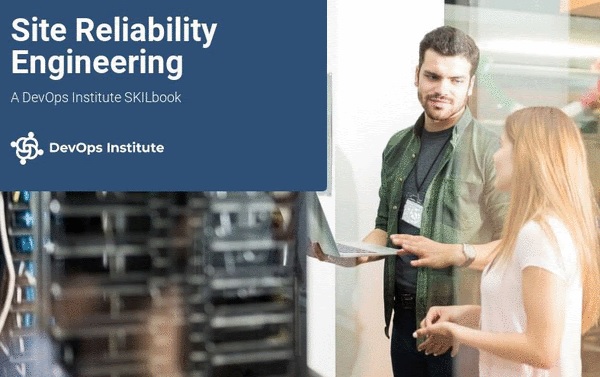Network operations teams are trying to establish partnerships with DevOps teams, but the process isn't easy. The DevOps team tends to focus on the deployment and quality of applications while the network operations team focuses on network monitoring and management. While the two groups have different priorities, they see opportunities to help each other ...
BIZDEVOPS Blog
A healthy CI/CD pipeline ensures that your DevOps journey is headed toward success. Continuous integration, continuous delivery and continuous deployment each play an important role in the CI/CD pipeline, and it's important to differentiate between each. Understanding the unique role of each CI/CD component will set you on a path toward better software and happier customers. DevOps Institute Ambassadors always have unique insights, so I asked several of them to explain how they would describe the difference between continuous integration, continuous delivery and continuous deployment ...
Digital transformation has allowed business enterprises to relook at their business models and find ways to accelerate their workflows. It is now a foregone conclusion that the future will belong to those who are fast, agile, and innovative. Every business enterprise worth its salt is eyeing the fast-changing dynamics of the market and is aiming to — release new products quickly to the market, innovate fast, become agile, and embrace new ways to work. No wonder, digital transformation has become the way to go for enterprises, confirmed by two-thirds of CEOs, according to IDC. And when it is about digital transformation, how can DevOps as a methodology stay behind? ...
Leveraging performance testing services is necessary to prevent the software application from facing downtime, lag, or other issues. These services can help with easy tracking of issues that have the potential to impact the functionality, features, and end-user experience. The trends in performance testing and engineering are as follows ...
Each year, O'Reilly Media analyzes annual trends in technology usage to help the developer community stay abreast of emerging technology areas — whether it's learning about software architecture for the cloud, mastering new languages to support cryptocurrency or productizing artificial intelligence (AI). By evaluating the top search terms, targeted questions and content usage on our learning platform, we're able to share insights into the top trends influencing software development — insights that empower software developers, data scientists and other practitioners to begin the hard work of taking emerging technologies and deploying them as real-world solutions ...
Nearly 97% of DevOps teams are integrating their orchestration solutions with network automation tools, according to new research from Enterprise Management Associates (EMA). Integration between data center network automation tools and DevOps tools are nearly universal, but the depth of that integration varies. More than 50% of companies have or plan to have only loose integration between NetOps and DevOps automation, meaning that many NetOps teams are limiting the extent of network programmability that they offer to DevOps ...
When it comes to IT professions, skill development remains essential to human transformation. The ability to collaborate, solve problems and continuously upskill helps advance the DevOps journey and creates stronger, more effective individuals, teams and organizations. Site Reliability Engineering (SRE), remains a top practice — with SRE-specific roles making it to the forefront of many organizations' hiring objectives. As more organizations look for qualified SRE candidates or look to upskill their internal SRE's, technical skills remain critical to building top performers in this role. For further insights, we reached out to DevOps Institute Ambassadors, who identified several other SRE skills ...
You may have heard that flexibility is one of the most important benefits of Low-Code Rapid Application Development. They make the majority of development more doable, whether you're an owner-operator or a tech developer yourself. They not only simplify and streamline the process, but they also have a positive economic impact in terms of cost and efficiency. As markets expand and become increasingly digitally driven, the ability to cut overheads and bring app development in-house opens up the market for even the smallest startup ...
DevOps is a set of practices that improve the efficiency and effectiveness of IT operations. Utilizing many aspects of agile methodology, DevOps aims to shorten the systems development life cycle and provide continuous improvement. As you consider incorporating DevOps into your operations, understand the effect DevOps has on processes and culture. Successful implementation is about finding the right balance of attention on people, processes, and technology to achieve improvement ...
I asked top industry experts — DevOps Institute Ambassadors — to share their thoughts on when you may not want to use containers. Here's what landed at the top of the list ...
As we look into the future direction of observability, we are paying attention to the rise of artificial intelligence, machine learning, security, and more. I asked top industry experts — DevOps Institute Ambassadors — to offer their predictions for the future of observability. The following are 10 predictions ...
Netflix didn't set out to create a "DevOps culture." They didn't follow a set of predefined rules. They didn't have endless strategy meetings. They didn't have to hire DevOps consultants. Instead, they developed a DevOps culture organically. And it all started with the worst outage in their history ...
DevOps takes a drastic departure from the status quo by combining processes, tools, and practices to accelerate the application's time to market while upholding its quality. DevOps helps remove barriers that prevent organizations from developing, testing, delivering, and updating applications or systems quickly. Its focus on continuous integration and delivery reduces the SDLC to a minimum ...
Baking security into your software and apps from the beginning is more important than ever. Without security, your development lifecycle is open to bugs and vulnerabilities putting your organization and customers at risk. I asked several speakers and sponsors for the upcoming SKILup Day as well as several DevOps Institute Ambassadors to weigh in on the hottest DevSecOps trends. Here's what they shared ...
While DevSecOps practices are still evolving, there are many trends to keep an eye on. I asked several speakers and sponsors for the upcoming SKILup Day as well as several DevOps Institute Ambassadors to weigh in on the hottest DevSecOps trends. Here's what they shared ...


















